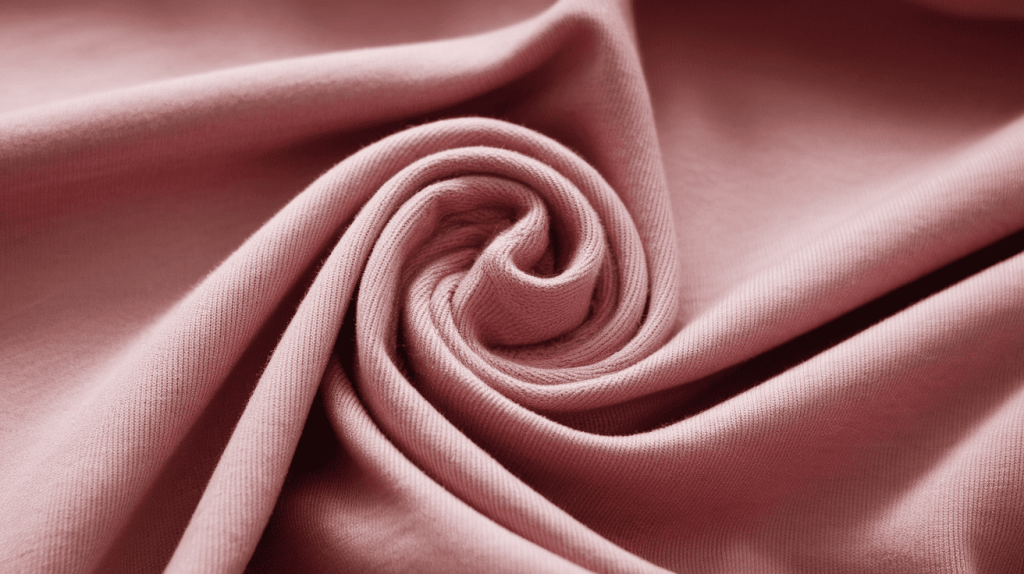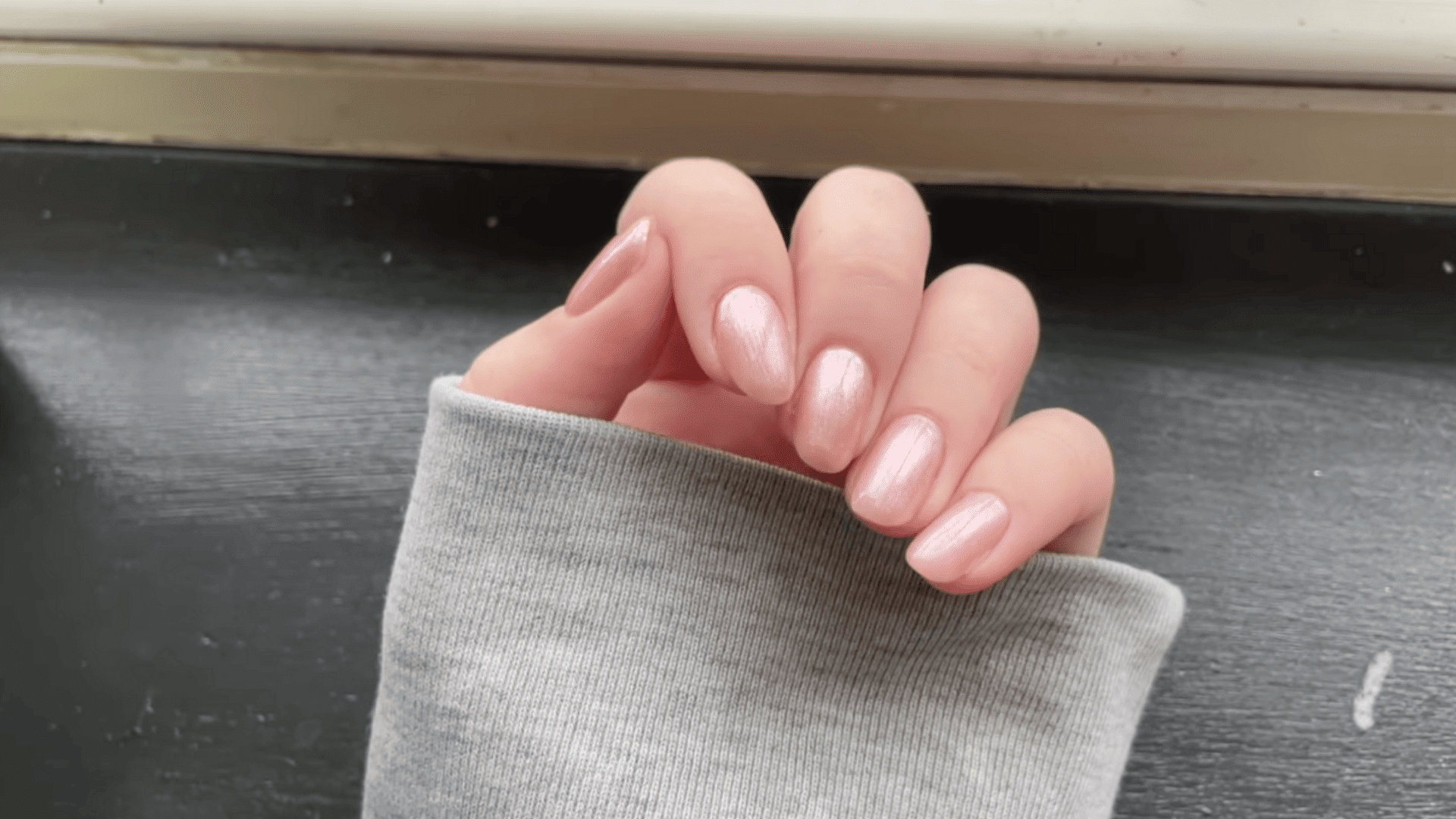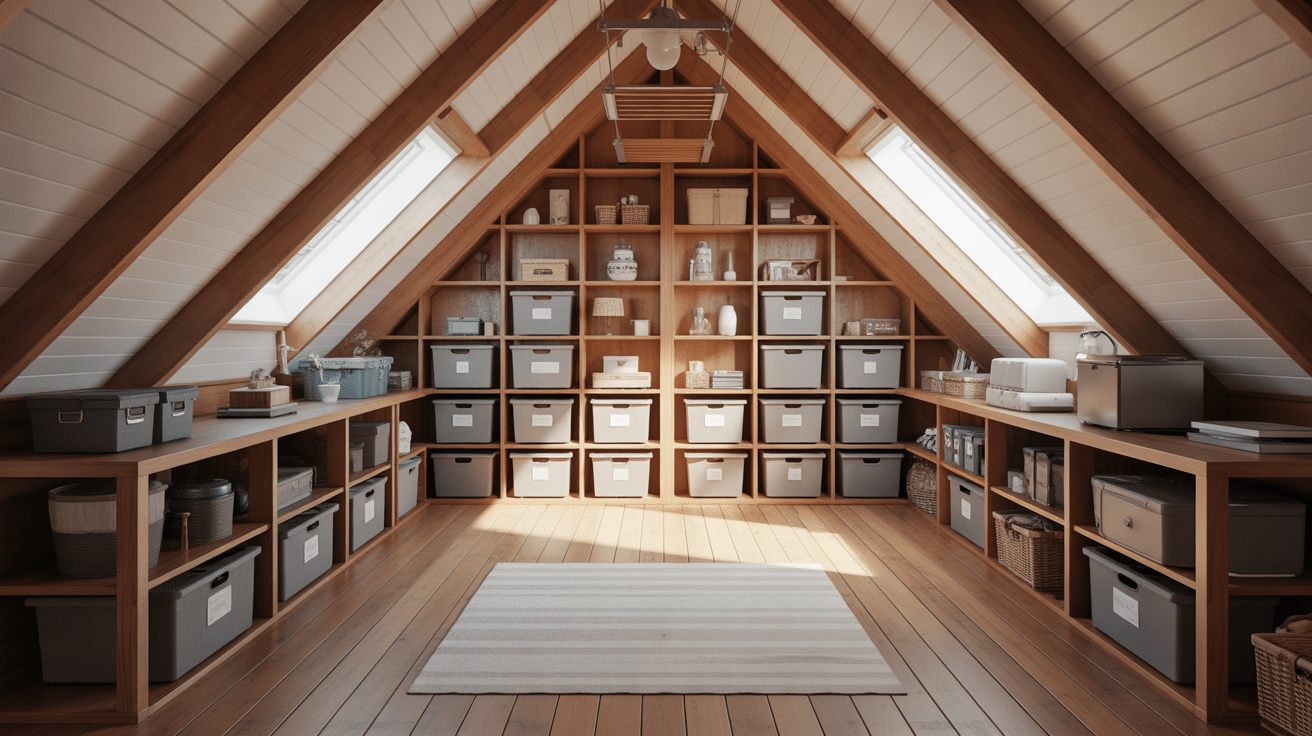Have you ever wondered, “what is modal fabric?” when shopping for clothes or bedding?
Modal is becoming increasingly popular in everything from pajamas to athletic wear, but many people don’t know what makes this fabric so special.
Modal offers incredible softness, excellent breathability, and impressive durability that outperforms many traditional fabrics. Created from beech tree cellulose through an eco-friendly process, modal combines natural comfort with modern performance.
The fabric feels silky smooth against your skin while providing excellent moisture control and shape retention.
Let’s find out everything you need to know about modal fabric, from its manufacturing process to why it could be the perfect choice for your wardrobe and home
What is Modal Fabric and How It’s Made?
Modal fabric is a soft, semi-synthetic textile made from natural beech tree pulp. Unlike fully synthetic materials like polyester, modal comes from plant fibers, making it more breathable and comfortable against your skin. The fabric feels silky smooth and has excellent moisture-wicking properties.
To create modal, manufacturers extract cellulose from beech trees and treat it with special chemicals to turn the wood pulp into strong, flexible fibers. This process places modal in the rayon family of fabrics.
Lenzing Modal, produced by the Austrian company Lenzing AG, is considered the gold standard for modal production.
Their environmentally responsible methods use sustainable forestry practices and closed-loop production systems that recycle water and chemicals, reducing waste and environmental impact.
Where is Modal Fabric Produced?

Modal fabric is produced in several countries around the world, with Austria leading the way through Lenzing AG’s high-quality manufacturing. Major production also happens in India, China, and Indonesia, where many textile companies have set up modal facilities.
However, not all modal is made equally. Some manufacturers follow strict environmental standards, while others use less sustainable practices. The most eco-friendly modal comes from certified sources like FSC-certified forests, which ensure responsible tree harvesting.
Companies using closed-loop systems recycle water and chemicals, creating less waste. When shopping for modal products, look for certifications guaranteeing environmentally responsible manufacturing methods.
Characteristics of Modal Fabric
Modal fabric has many qualities that make it a popular choice for clothing and home textiles. Here are the key characteristics that set modal apart from other fabrics:
- Soft and Breathable – Modal feels silky smooth against your skin and allows air to flow through easily.
- Moisture-Wicking – The fabric pulls sweat away from your body, keeping you dry and comfortable.
- Wrinkle-Resistant – Modal clothes stay smooth and need less ironing than cotton or linen.
- Retains Shape and Color – The fabric doesn’t stretch out of shape or fade after many washes.
- Biodegradable – When made sustainably, modal breaks down naturally in the environment.
- Long-Lasting and Colorfast – Colors stay bright, and the fabric remains strong wash after wash.
These properties make modal an excellent choice for everyday clothing, especially items like underwear, pajamas, and activewear, where comfort and durability matter most.
Modal Fabric vs Cotton: What’s the Difference?
When shopping for clothes or bedding, you might wonder whether to choose modal or cotton. Both are popular fabric choices, but they have different strengths and weaknesses. Here’s how they compare:
| FEATURE | MODAL FABRIC | COTTON |
|---|---|---|
| Feel | Silky smooth, soft against skin | Natural softness can be rough when new |
| Sustainability | More eco-friendly when certified, uses less water | Uses lots of water and pesticides to grow |
| Durability | Very strong, keeps shape well | Strong but may shrink and lose shape |
| Cost | More expensive | Less expensive, widely available |
| Best Uses | Underwear, pajamas, activewear, bed sheets | T-shirts, jeans, towels, everyday clothing |
Modal offers superior softness and moisture-wicking compared to cotton, making it perfect for sleepwear and undergarments. Cotton remains more affordable for everyday clothing, while modal’s comfort justifies the higher cost for items worn close to the skin.
Where is Modal Fabric Used?
Modal fabric’s soft texture and excellent breathability make it perfect for many different products. You’ll find modal in everything from everyday clothes to luxury bedding. Here are the main ways modal fabric is used today:
1. Clothing
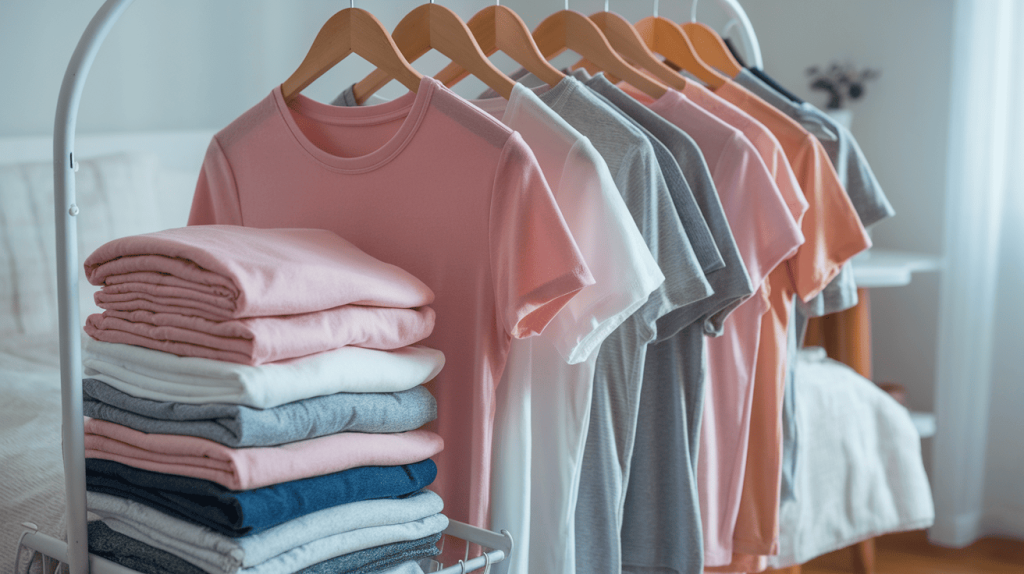
Modal works wonderfully for everyday clothing that touches your skin directly. T-shirts made from modal feel incredibly soft and stay comfortable all day.
Modal underwear provides excellent moisture control and doesn’t lose its shape. Leggings benefit from modal’s stretch properties, helping garments maintain their original fit after many wears and washes.
2. Sleepwear
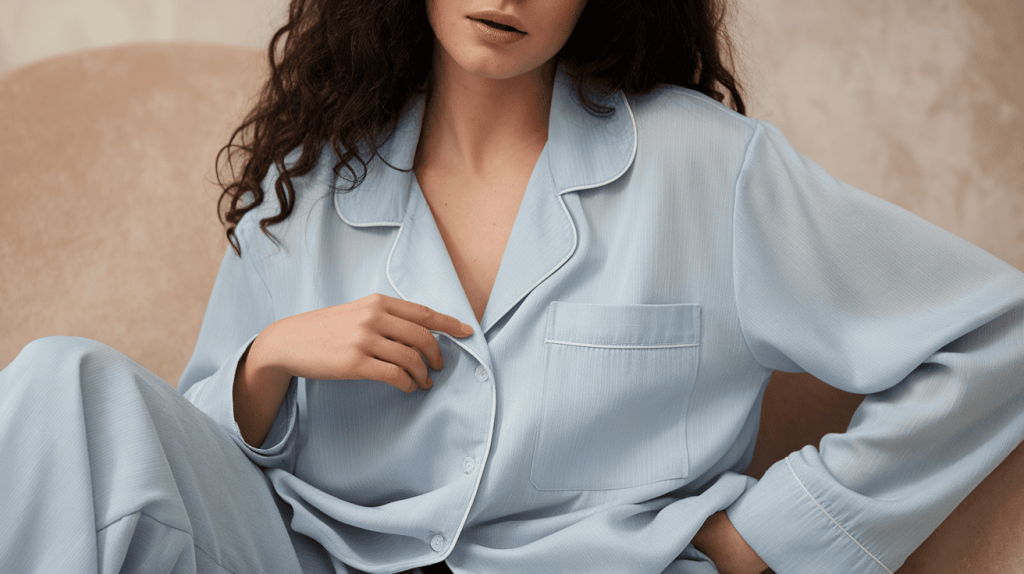
Modal is an excellent choice for sleepwear because it keeps you comfortable throughout the night. Modal pajamas feel silky smooth against your skin and help regulate body temperature while you sleep.
Robes made from modal are lightweight yet cozy. The fabric’s natural breathability prevents overheating, while its moisture-wicking properties keep you dry and comfortable.
3. Athletic Wear
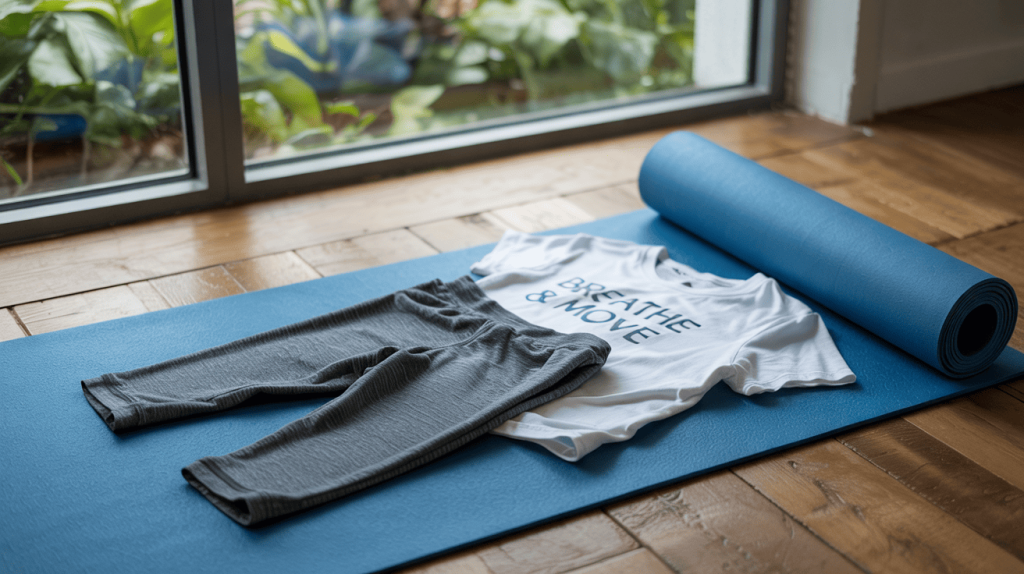
Athletes love modal for its performance qualities during workouts. Modal athletic wear pulls sweat away from your body quickly, keeping you dry during exercise.
The fabric’s natural stretch allows full range of motion without restricting movement. Unlike synthetic athletic fabrics, modal doesn’t trap odors, so workout clothes stay fresher longer and require less frequent washing.
4. Home Textiles
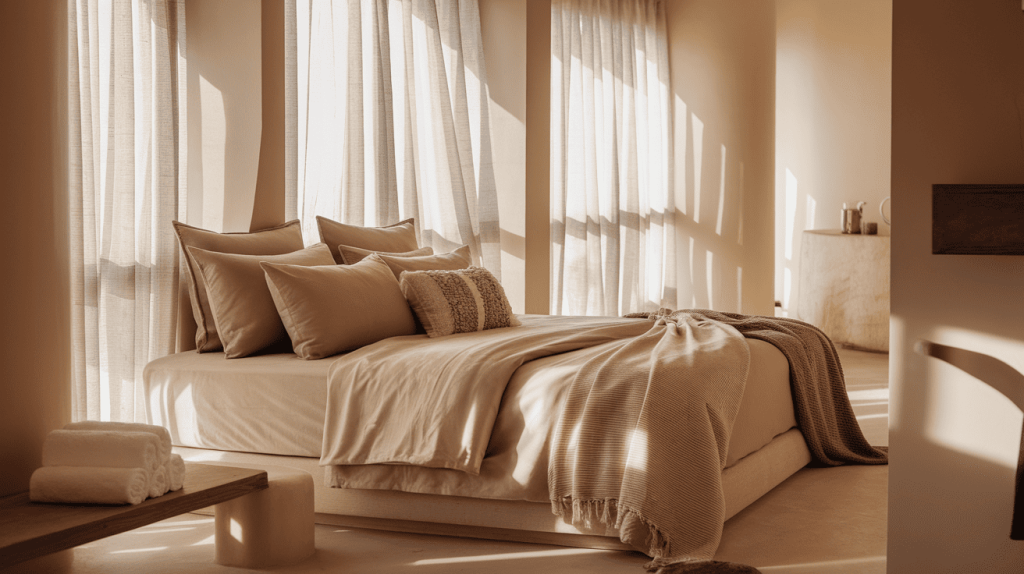
Modal creates luxuriously soft home textiles that improve your daily comfort. Modal bed sheets feel incredibly smooth and get softer with each wash, providing a hotel-like sleeping experience.
Towels made from modal are highly absorbent yet dry quickly. Modal pillowcases are gentle on your hair and skin, reducing friction that can cause bedhead and irritation.
5. Fashion
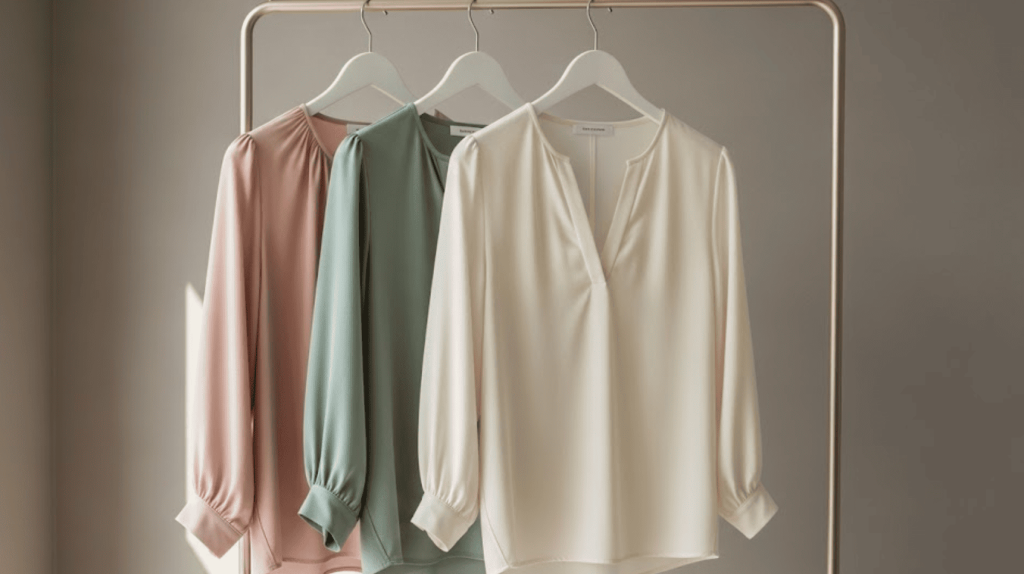
Premium and eco-conscious fashion brands increasingly choose modal for their collections. High-end designers appreciate modal’s silk-like drape and luxurious feel for sleek garments.
Sustainable fashion companies favor modal because it can be produced with environmentally responsible methods. Many brands use modal blends to combine style, comfort, and environmental consciousness.
Is Modal Fabric Eco-Friendly?
Modal fabric can be eco-friendly, but it depends on how it’s made. Since modal comes from beech trees, it’s a renewable resource that can biodegrade naturally.
The best modal producers use closed-loop systems that recycle water and chemicals, creating very little waste. Lenzing Modal sets the gold standard with sustainable forestry and responsible manufacturing practices.
However, not all modal is equally green. Some manufacturers use energy-intensive processes and harsh chemicals that can harm the environment.
The chemical treatment needed to turn wood pulp into fabric requires careful handling. When shopping for modal, look for certified sustainable brands to ensure you’re choosing truly eco-friendly options.
Pros and Cons of Modal Fabric
Like any fabric, modal has both advantages and disadvantages. Understanding these can help you decide if modal is right for your needs:
| PROS | CONS |
|---|---|
| Incredibly soft and smooth texture | Can be more expensive than cotton |
| Durable and shrink-resistant | Depends on sourcing and production practices |
| More eco-friendly than synthetic fabrics | Not 100% natural (semi-synthetic) |
| Excellent moisture management | Limited availability in some areas |
Overall, modal’s benefits often outweigh its drawbacks for most people. The comfort and durability make it worth considering, especially for items like sleepwear and undergarments, where softness matters most.
How to Care for Modal Fabric?
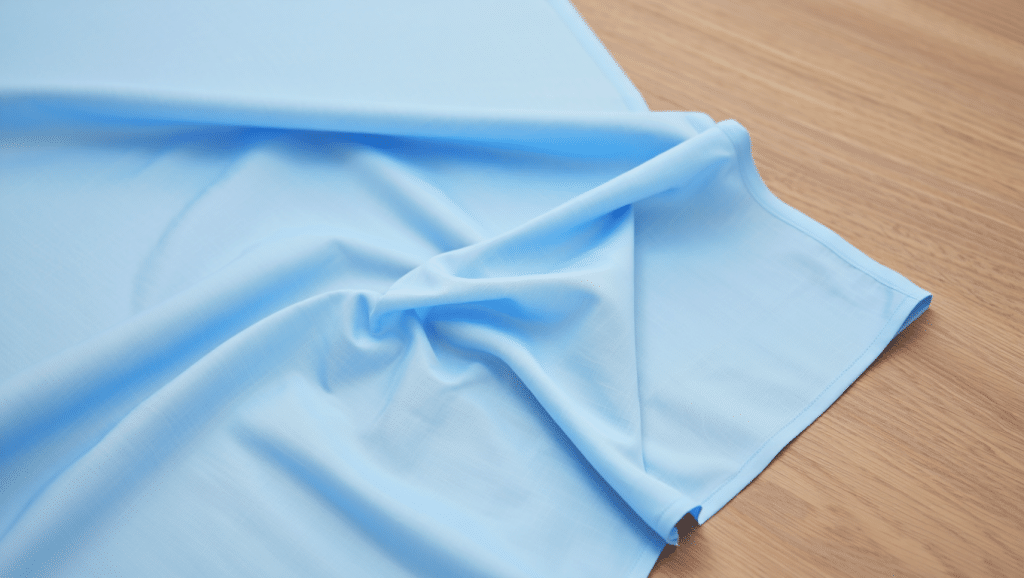
Taking proper care of modal fabric is easy and helps your clothes last longer. Following these simple steps will keep your modal items soft, comfortable, and looking like new:
- Machine Wash Cold – Use cold water to prevent shrinking and protect the fabric fibers.
- Use Gentle Detergent – Choose mild, eco-friendly detergents without harsh chemicals.
- Avoid Bleach – Bleach can damage modal fibers and cause yellowing or weakness.
- Tumble Dry Low or Air Dry – Use low heat settings or hang items to dry naturally.
- Iron on Low if Needed – Modal rarely wrinkles, but use low heat if ironing is necessary.
With proper care, your modal clothing and textiles will stay soft and beautiful for years. The fabric actually gets softer with each wash, making it even more comfortable over time.
Summing It Up
Now you know the answer to “what is modal fabric” and why it’s gaining popularity worldwide!
This versatile, eco-friendly material offers unmatched softness, durability, and moisture-wicking properties that make it perfect for sleepwear, underwear, and athletic wear. While modal may cost more than cotton initially, its long-lasting quality makes it a smart investment.
From breathable pajamas to workout clothes and luxurious bed sheets, modal fabric delivers exceptional performance and comfort. The fabric gets softer with each wash and maintains its shape over time.
Consider adding modal items to your collection and experience the difference this remarkable fabric can make. Have you tried modal fabric before? Share your experiences in the comments below!

